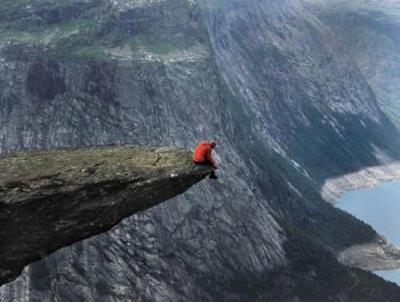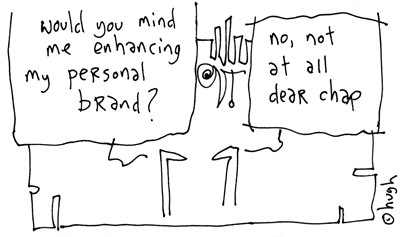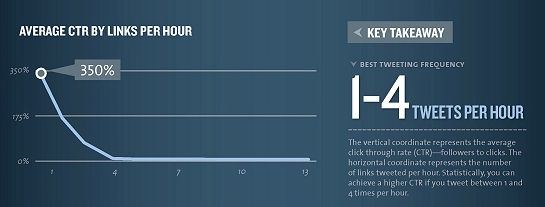The quote on this picture I encountered in internet by chance struck me.
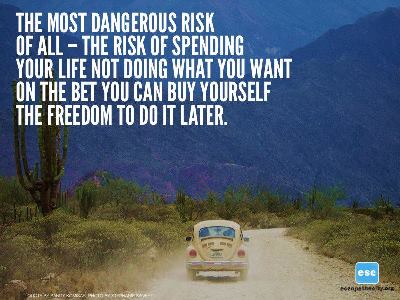 Indeed it is a great risk of spending your life not doing what you want on the consideration you can buy yourself the freedom to do it later.
Indeed it is a great risk of spending your life not doing what you want on the consideration you can buy yourself the freedom to do it later.
It assumes a bet on life, on the future. Some people indeed work like mad looking for an enjoyable retirement without ever taking advantage of it.
Is it really the most dangerous risk of all? In terms of personal balance it is certainly a great risk. Still sometimes it is great to have the possibility to take advantage of available opportunities to fund or prepare a future venture. I don’t think it is a problem if it corresponds to a clearly defined period that does not exceed a pair of years, and relates to a clear plan.
If you are like me, it is still good to remember sometimes that it is important to take advantage of the present moment and not bet everything on the future in particular further than a few months away.

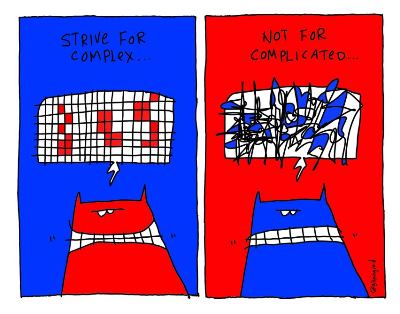


 Anyway, I found there an excellent career advice, and a new concept, the squiggle:
Anyway, I found there an excellent career advice, and a new concept, the squiggle:

